Hell is a concept as old as time, but does it truly exist? There are uncountable stories, and numerous versions of Hell throughout history, from the Greek version of Hades, to the modern Catholic version of a pit of fire, they all have one thing in common, judgement.
But is it real? And if it is, how could a mortal attempt to enter through the gates of the world below? Here are eight places on earth said to lead below.
1. The Gates of Guinee - New Orleans, Louisiana
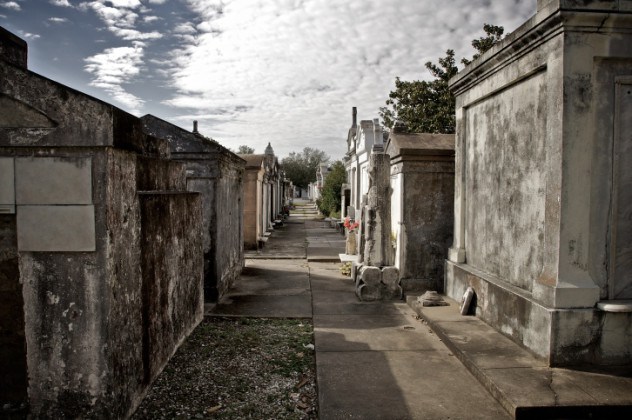
If you are to believe the local legend, the entrance to the Voodoo underworld can be gained through a series of seven gates laid out across New Orleans' French Quarter. Voodoo is an ancient religion that was brought over to North America from Africa during slavery, and according to religion teachings, the spirits of the dead end up in a portion of the underworld known as Guinee.
Guinee shares more in common with purgatory than it does with Hell, as it is not a place of judgement and punishment, but rather a shadow plane that spirits must cross through before reaching the "Deep Waters" where they will reunite with their ancestors.
Baron Samedi, one of the loa who is often portrayed as a painted skeleton dressed in a top hat and tails, guards the crossroads that form the portals to other dimensions.
Some VooDoo practitioners view the "Seven Gates" as a symbolic reference to week after death, while others believe that the seven spiritual gates have physical counterparts on our earthly plane. For those that believe in the physical gates to be spread across various cemeteries throughout the New Orleans French Quarter.
2. St. Patrick's Purgatory - Lough Derg, County Donegal, Ireland
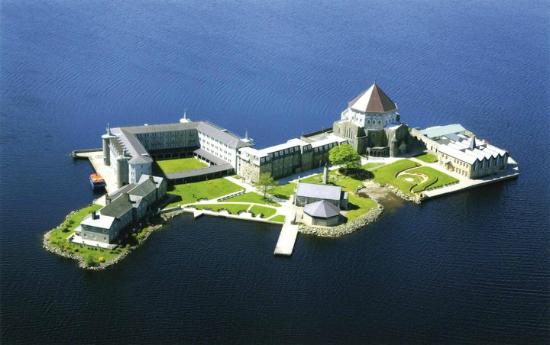
St. Patrick's Purgatory is a monastery located on a small island in the middle of Lough Derg, a small lake in the heart of Ireland. Traditional legend says that Jesus showed St. Patrick visions of what awaited sinners in Hell through a series of caves located on the island.
There is no actual historical proof that St. Patrick every actually visited the island himself, but it was used as a way to revitalize the followers of St. Patrick and prove to them that there was in fact a Christian afterlife and penalties for sinning.
Visitors are not regularly welcomed to the island but every year devout worshipers come on three day pilgrimages to test their own faith. It is often said that this is the toughest pilgrimage in all of Christianity.
3. The 7 Gates of Hell - Hellam Township, Pennsylvania
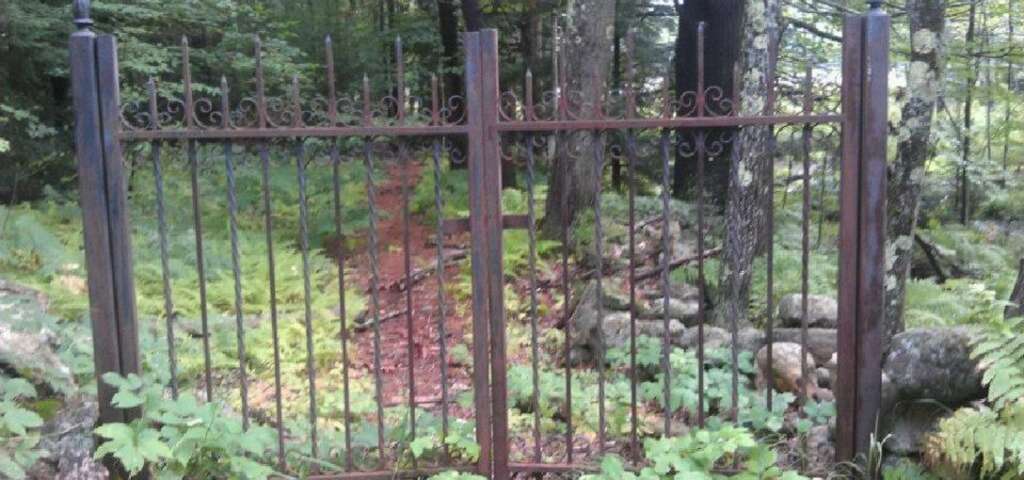
According to legend the seven gates to Hell are located on Trout Run Rd., in Hellam Township Pennsylvania. Local lore states that the seven gates are located near the site of a deadly fire that destroyed a local insane asylum.
The legend states that if any mortal were to walk through each of the seven gates located in the woods, they would find themselves on a one way trip directly to Hell, do not pass go, do not collect $200.00.
The legend does have some holes though. On the Township's website, it says that an asylum was never located on that particular piece of property. Also, there is only one gate, installed by a local resident in an attempt to keep people off of his land. Though, local folklore also says that the other six gates are not visible to the naked eye during the day, that the sojourn through the gates of hell must be an adventure under cover of darkness.
Apparently no one has ever lived to tell the tale... because no one has ever made it past the fifth gate.
4. Pluto's Gate - Turkey
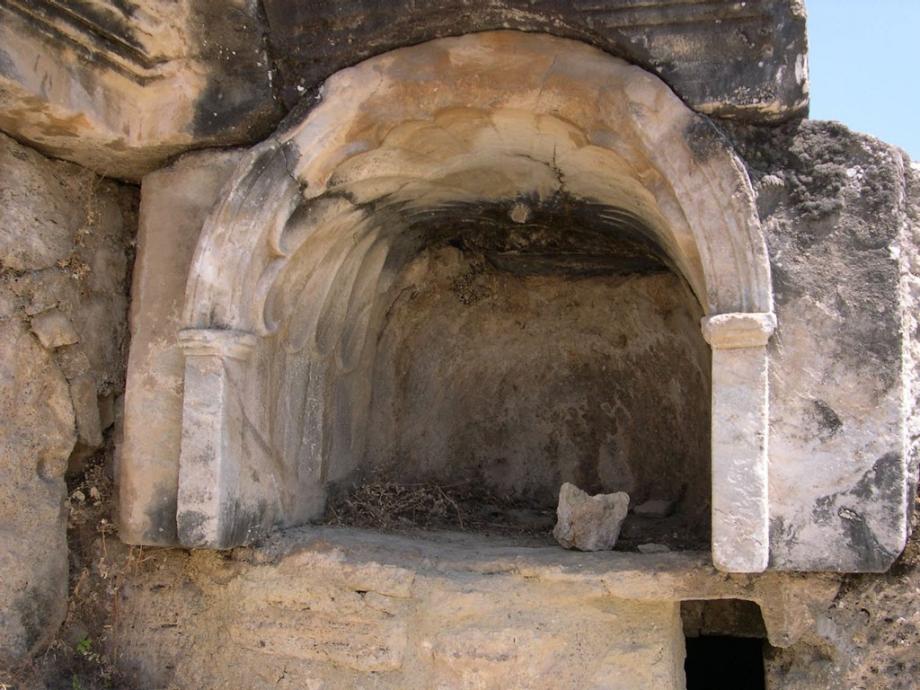
Pluto was the Roman version of the Greek God Hades, and both were considered gods and guardians of the underworld. Pluto's Gate was a used as a ritualistic site to honor the God of the Underworld. The gate was built over a cave that did (and still does to this day) emit poisonous gasses.
The gate was only recently accidentally unearthed by archaeologists that were mapping out the route of a naturally occurring thermal spring.
Followers of Pluto would sacrifice small animals to the pit in order to gain favor with the God. The priests who oversaw the gate/cave were the only ones who could stand beside the entrance as they were so high on the toxic fumes that they appeared to be spared by divine intervention.
5. Lacus Curtius - Rome, Italy
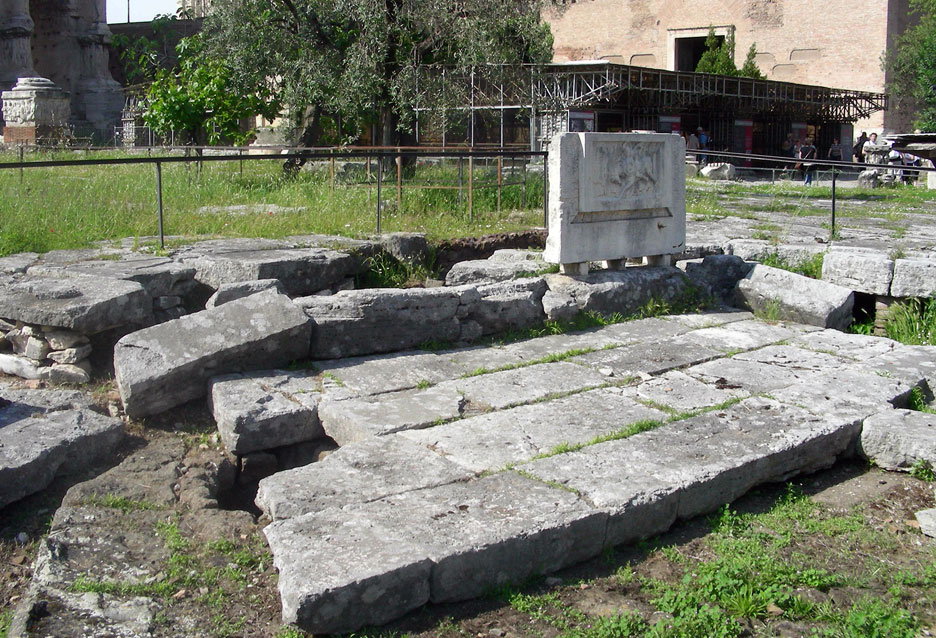
The ancient Colosseum is a major draw for tourists visiting the historic city of Rome, Italy. Few if any of the thousands of tourists who visit understand that the small covered well near the center of the structure was once considered to be a gateway to the underworld.
Long ago, Rome was warned that it would be destroyed if it was unwilling to sacrifice what was most important to it. It was around this time that a chasm seemed to appear out of nowhere near the center of the Colosseum in order to accept the offering from the Roman people. Marcus Curtius, a centurion in the Roman legion (and the namesake for Lacus Curtius), took this to mean that a soldier of Rome must sacrifice themselves to the chasm to appease the gods.
With that in mind, Curtius put on his armor and rode his horse full speed into the opening in the earth. The rip in the earth allegedly closed after this, "and Rome was saved".
6. Hekla - Iceland

Hekla, Iceland's most active volcano (having erupted four times since the early 70s) has been considered to be one of the earthly gates to hell for centuries. Located to the far north, in the southern mountain ranges of Iceland, legend claims it to be the final prison for the soul of Judas, the traitor who gave Jesus up to the Romans.
Hell's Chimney as it is sometimes referred to has been quieter over the last several decades than it had been over the centuries is still a danger to passing airplanes that can become trapped in giant plumes of ash that escape from the mouth of this volcano.
Superstition has given way to rational thought in regards to this legend, but local Icelanders still say that witches commune around its peak each Easter.
7. Fengdu City of Ghosts - China

Fengdu, or The City of Ghosts as it is more commonly referred to, is a city that is over 2000 years old. It is said to be a place where the spirits of the dead stop on their way to eternal rest, though not in the way that you would suspect.
An ancient legend tells of two men, Wang Fangping and Yin Changsheng, who left behind the imperialist nature of the world in order to practice Taoism, thus becoming immortals.
The city itself is filled with Buddhist and Taoist temples said to be inhabited by the spirits of immortals who judge, punished, and torment the dead. Mortal visitors to the city can walk across the numerous bridges in order to face the demons who guard the underworld themselves.

